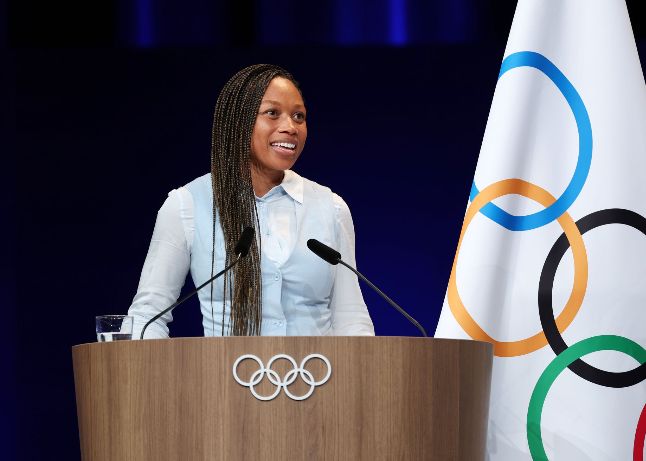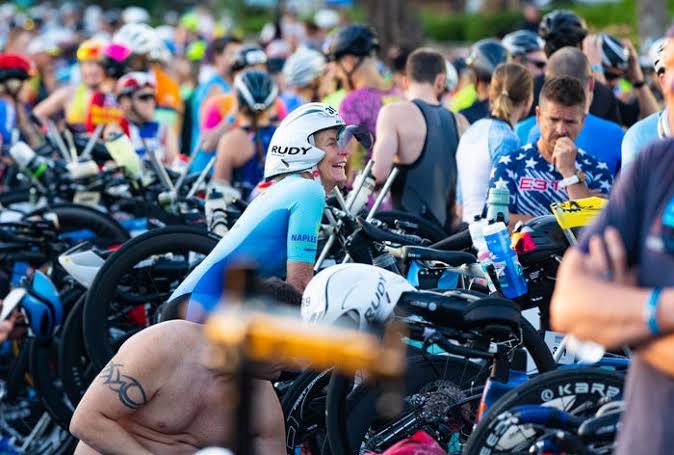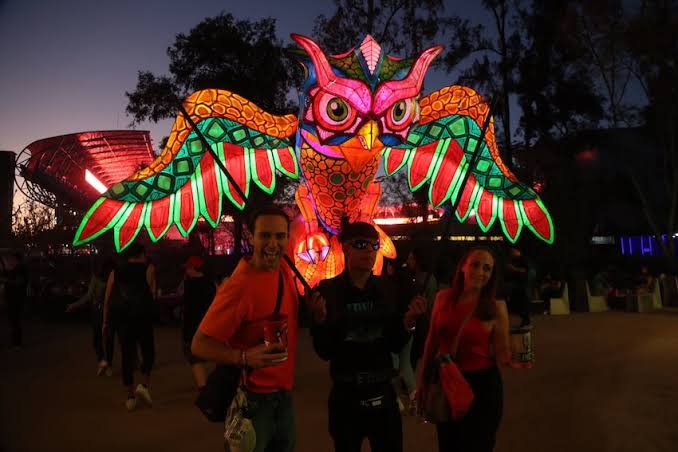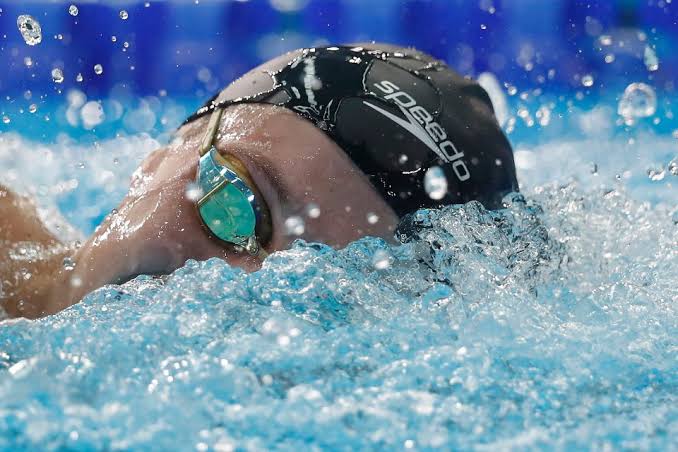
Death of a teammate, traumatic pregnancy, bruising pay war: how Allyson Felix survived it all to become a track legend
Felix’s 11 Olympic medals have made her the most decorated American track and field athlete of all time. She talks about her greatest battles inside and outside the stadium
When Allyson Felix won her final gold Olympic medal, at Tokyo 2020, it made her the most decorated US track and field athlete of all time. Eleven medals – seven of which were gold – over five consecutive Games.
But that final gold, in the women’s 4x400m relay at the postponed Games, held in 2021, was all the more impressive given what Felix had been through since the previous Olympics. Just two years before, she had nearly died in childbirth, and now she felt she had a duty to tell the world about it.
“Although my mindset was completely dialled in to the task at hand,” she says, “I also knew that I was running for a bigger purpose.”
Felix had been 32 weeks pregnant when she was diagnosed with severe pre-eclampsia – a complication of pregnancy that causes high blood pressure – at a routine prenatal appointment. She was taken to hospital for an emergency caesarean.
Her daughter, Camryn, was born weighing just over 2kg (4lb 8oz) and was in a neonatal intensive care unit for a month. “I was unsure if I was going to make it.
If I was ever going to hold my precious daughter,” she later wrote.
“I think that being an Olympic athlete I took my health for granted,” Felix says today. “Even throughout my pregnancy.” It was only at 32 weeks, when “everything went south” that Felix realised how much at risk she was. Pre-eclampsia is 60% more common among Black women than among white women in the US – and rates for Black women are increasing, according to the Black Women’s Health Study.
And yet, Felix says, she was never warned about the dangers until it was too late. “You just don’t imagine these complications happening to a top athlete,” she says. But she realised that her story was “not unique or rare. So many women of colour have a similar story and I really wanted to be part of a solution.”
She did not find it easy to speak out.
“At the beginning, I was really unsure,” she says. “I wasn’t comfortable with sharing something so personal. But when I started to think about women who were affected, Black women, it made me understand that I needed to be vulnerable. Because going through that really changed me.”
In May 2019, she testified in front of a House of Representatives ways and means committee on maternal health and mortality, about what she described as the “most terrifying two days of my life”. She had noticed that her feet were swelling – a common symptom of pre-eclampsia – but she had never been told to look out for it. In her powerful testimony, she said doctors needed to start taking the health of Black women seriously in pregnancy.
“It was so out of my comfort zone,” she says. “But I knew that testifying would bring more attention to the issue.”
In April 2023, Felix was rocked by the news that her teammate and friend Tori Bowie, with whom she had won a gold Olympic medal in the 4x100m relay at Rio 2016, had died after going into early labour. In 2021, another member of that team, Tianna Bartoletta, nearly died in childbirth after going into labour at 26 weeks.
Bowie’s death was “devastating”, Felix says.
“Thinking back to all of the relays we’d been in together, competing side by side. And to realise that she had these severe complications, in this day and age? It’s just tragic.”
It prompted Felix to write a blistering piece for Time magazine that said her friend must not “die in vain”. In the US, Black women are two-and-a-half times more likely to die from a pregnancy-related cause as their white counterparts. In the UK, Black women are four times more likely to die in childbirth than white women.
“We’re dealing with a Black Maternal Health crisis,” Felix wrote. “Here you have three Olympic champions, and we’re still at risk … I would love to have another child. That’s something that I know for sure. But will I be here to raise that child? That’s a very real concern. And that’s a terrifying thing.”
Felix, 38, was born in 1985 in Los Angeles; her father was an ordained minister and her mother worked as an elementary school teacher. Her older brother and now agent, Wes Felix, was also a sprinter specialising in the 100m and 200m at a national level. Felix herself tried out for her school track team at 13 before going on to win dozens of titles on a regional and national level.
Her talent, evident from a young age, is something she has consistently attributed to her Christianity. “My faith has always been the foundation, and it’s the reason that I ran,” Felix says. “I felt like I was blessed with this gift, and I always wanted to use it to the best of my ability.”
She made her first Olympic appearance at 18, at the 2004 Games in Athens.
She describes the whole experience as “just overwhelming”.
The previous year had been a successful one: she had finished second in the 200m sprint at the 2003 US national championships, and reached the quarter-finals of the athletics world championships in the same event in Paris that year. Her Olympic approach was not about “mindset” she says. “I was just there to compete.” She won a silver medal in the 200m sprint.
In 2007, she beat the woman she came second to in Athens, Jamaica’s Veronica Campbell-Brown, when she broke the 22-second barrier for the first time in her career in the 200m at the world championships in Osaka.
“There are the moments that you have that pay off, and it feels great and you have a breakthrough,” Felix says. “Breaking 22 seconds felt like a long time coming, as in my mind I thought it would have happened more quickly.
It was years before it did happen, but when it did it was such a joyous and rewarding feeling.” After that race, she said her next goal was a gold medal at the 2008 Beijing Olympics.








